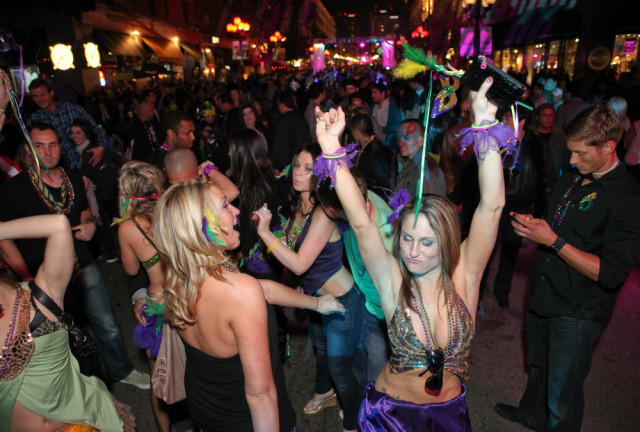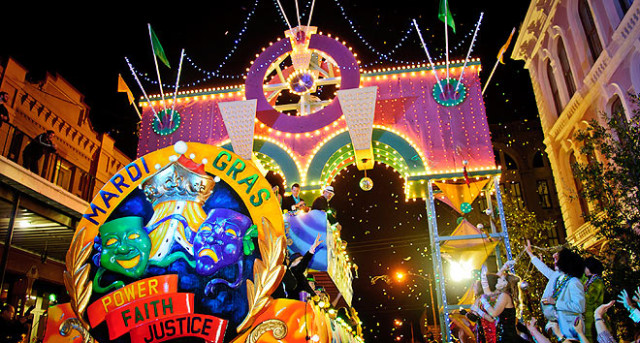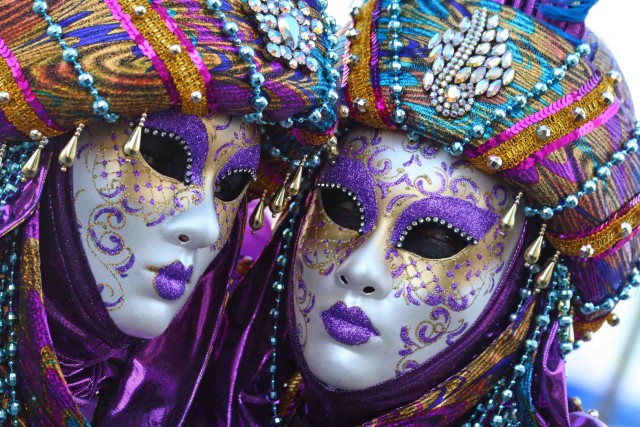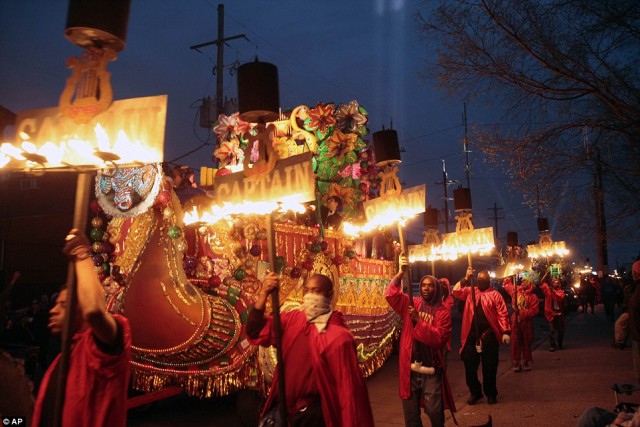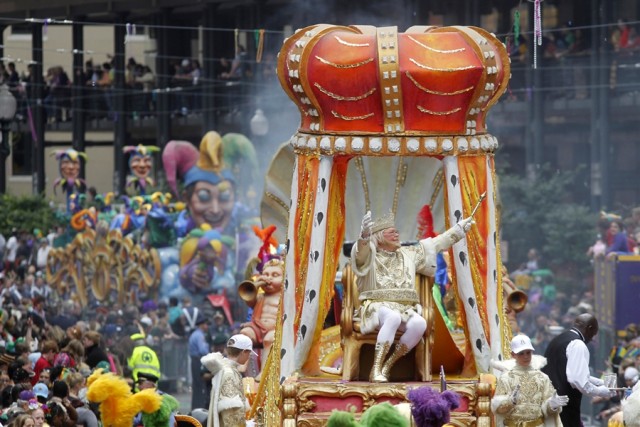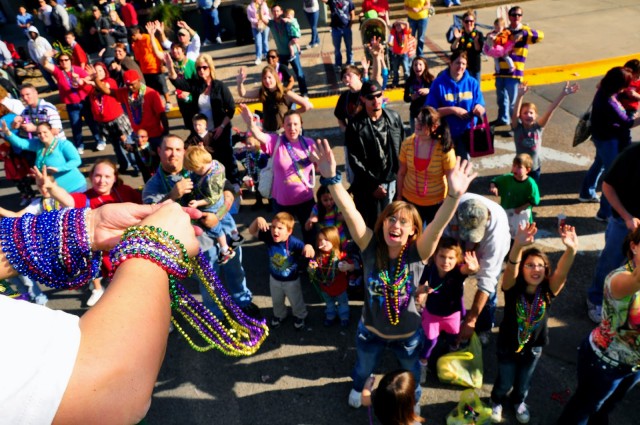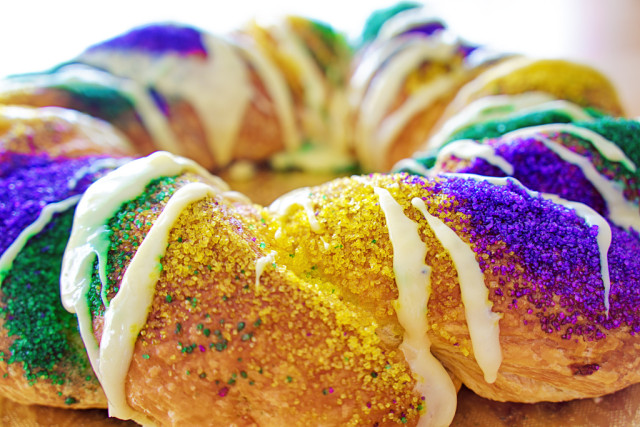By Richa Sharma
There is a lot of activity in New Orleans today… that’s because the city is celebrating its grand festival of Mardi Gras! Each year, New Orleans goes crazy on the Tuesday before Ash Wednesday. This festival is ancient and has a lot of importance in the people’s lives.
Here’s a bit you should know about Mardi Gras…
What is Mardi Gras?
Mardi Gras is French for ‘Fat Tuesday’ {‘Mardi’ is Tuesday, ‘Gras’ is Fat}. It is also famous by the name of ‘Shrove Tuesday’. As the name suggests, it’s a grand celebration on a Tuesday. It’s most spoken about as the “Carnival of New Orleans”.
How did Mardi Gras begin?
In the days of Pagan rituals, people celebrated the spring season of fertility by organizing a fest during the winter of saturnalia. However, as Christianity spread, this celebration took a different meaning.
Throughout the Christian world, the Ash Wednesday marks the beginning of a religious Lent season. This is a holy period of 40 days wherein people repent their sins by fasting and confessions.
Hence, as the last night (or few days) of merry-making, people try to have as much fun as possible. They do all sorts of malice and engage in every luxury possible before having to go to the church and apologize for it. So Mardi Gras represents the last night of eating a big meal before beginning the fasting season of Lent. Hence, the “Fat” part…
Where is Mardi Gras celebrated?
Although today nearly the entire world celebrates Shrove Tuesday, but the epicenter is uniquely placed… Since 3rd March 1699, which is believed to be the first celebration, Mardi Gras has been a grand celebration in New Orleans, Louisiana, USA.
How is Mardi Gras celebrated?
Having its roots from the Pagan culture Mardi Gras has several traditional practices. Mask wearing, Flambeaux tradition, Zulu coconut, Bead throwing and King cake are among them.
Mask wearing is a famous tradition. You’d get to see creativity through vibrant colours and art on the masks. Masks also provided anonymity and bridged social gaps between the aristocratic and the ordinary.
Flambeaux Tradition. The pomp and show was only heightened at night-time, when the beasts in humans really came out. Flambeaux, or flame-torches, were lit at night and carried by slaves so that the nocturnal revellers could enjoy the celebrations even after dark.
Ever since Edison sparked our world with electricity, these became a mere entertainment – they could obviously not be omitted because humans love fire (just like moths).
Crowning of the Rex. This is a custom exclusive to the New Orleans Carnival. Each year, a member of the Rex Organization is crowned as the “Rex King”. He is then given the “Key to the City” by the mayor, and rules over the Mardi Gras Parade.
This tradition began in the days of American Civil War when Grand Duke Alexis, of Russia, visited the U.S. at the time of the fest. Since he brought tourists and business, the war struck society wanted to honor him with title of “king”.
Bead throwing. Since it was the time of Monarchy, Kings were trying to show off by showering jewels to the dancing jesters. The colours of the beads were decided by the King during the 1872 Carnival. He fancied “royal colours” – purple for justice, gold for power and green for faith. The respective coloured beads were showered on people according to their traits.
Now, mere mortals throw around glass or plastic rhinestones just because… But maybe one can collect these beads and treasure them. After a decade maybe they’ll become museum material? You never know.
Zulu Coconuts or Golden Nuggets. Zulu Social Aid and Pleasure Club is one of the oldest traditionally “black krewes” or parade hosts of Mardi Gras. They’re known for handing out Zulu coconuts as part of the festivity. Initially, they left these coconuts hairy and brown but now they know the importance of creativity these Zulu coconuts are decorated and painted artistically. Marketing, you know…
King Cakes. *drool* No Mardi Gras will ever be complete without preying on the purple, green and gold delicacy. This is just one of the many gluttonous meals that people indulge in on the last day of freedom. The bakeries are purposely loaded with these to tempt the passers-by into feasting on the rich cakes, which by the way are very easy on the eye as well as the tongue, but maybe not for the bum.
Mardi Gras is a worldwide Craze Fest. It’s the last night of sin. It’s the time to be badass before you must kneel before the high power and ask for forgiveness.
Maybe we need to start celebrating this in India too… What would be your favourite custom?



























